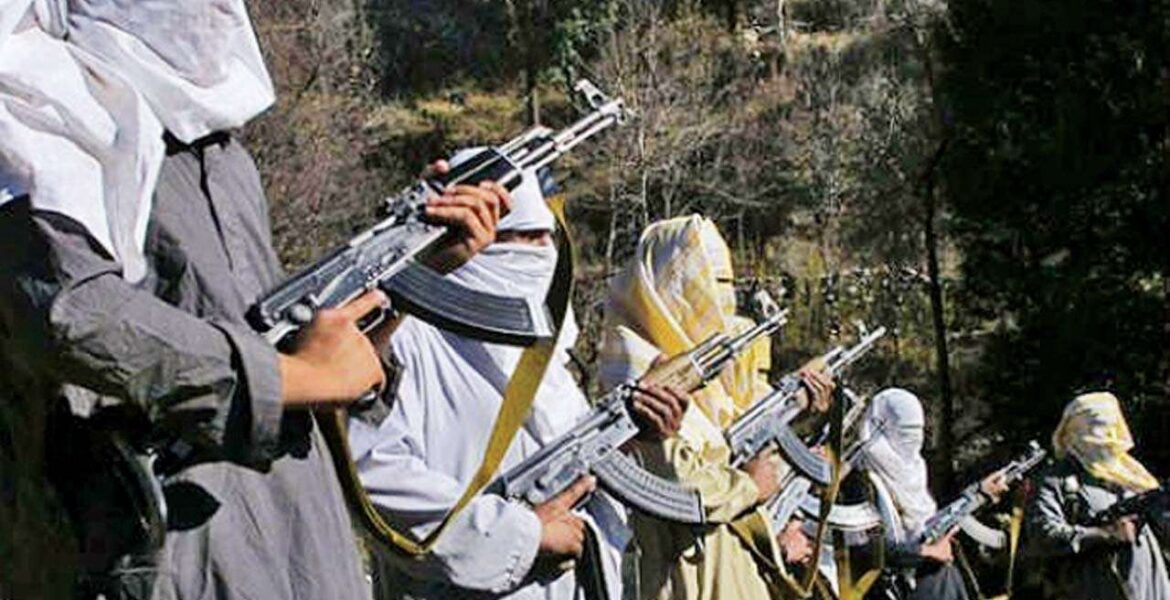The ravelled dynamics between drug trafficking and terrorism in Pakistan portray a composite challenge that eclipses borders, threatens socio-economic relationships, and jeopardises regional security. Pakistan's border lies along with one of the world's largest producers of heroin and opium, i.e. Afghanistan. Pakistan’s soil is used as a significant haulage for drug trafficking, along with encapsulation of the threat constituted by terrorist organisations.
It is important to understand the complex entanglement between drug trafficking and terrorism in Pakistan. This is necessary to strategise the combat method to fight against it. Drug trafficking and terrorism are both connected and entrenched in the society of Pakistan. The roots of this connection are found in the 1980 war between the Soviet Union and Afghanistan.
Afghanistan Mujahideen engaged in fighting with the Soviets and was assisted by the Pakistan-backed United States. During this time, to fund the war, opium cultivation was promoted in an escalating manner, and there were no checks and balances. These were controlled mainly by resistance groups like the Taliban, and drugs became the primary source of financial assistance to run their organisation.
In 1989, Soviet troops were withdrawn from Afghanistan, but Pakistan remained there and still acted as the hub for the supply of drugs. After the war, the Taliban took control of the opium-producing areas and dominated Afghanistan. It increased the supply and expanded its narco trade. This complex engagement of drugs and the Taliban established the ground for the Nexus of terrorism and drugs. Nowadays, this Nexus of terrorism, narcotics and money laundering in Pakistan has held its roots and incorporated other states and non-state actors. Terrorist organisations such as the Taliban and Tehrik-e-Taliban Pakistan are flourishing economically from the drug trade and funding terrorist activities against the state.
The Taliban is paying a tax on opium cultivation and is held responsible for the protection of smugglers. On a similar line tehrik-e -the Taliban has also been involved in drug trafficking and money laundering to fund its terrorist activities and complicate security challenges in Pakistan.
The border between Pakistan and Afghanistan is diluted, providing an enormous scope for collaboration among terrorist organisations and drug traffickers to launch the business of narcotics and reap the economic benefits. The challenge for agencies in forcing law has increased and put them into difficult situations after the coming together of drug traffic and terrorist groups. This has become a challenging task to bring down the criminal networks and stop the flow of interstate drug supply. The continuous supply of money into the pockets of truck tropical and terrorists further complicates the situation for the law and enforcement agencies to disrupt the organised and well-armed groups of narcos and terrorists. We need the state to come up with some new and comprehensive approach to address the security problem and maintain the socio-economic balance.
The United States and the European Union have considered Pakistan for its association with terrorist organisations and drug trafficking. Pakistan faces severe warning from the United States of America to revoke its alliance with drugs and terrorism immediately; otherwise, Pakistan will no longer be able to enjoy the financial assistance provided by the USA.
Despite all these warnings, Pakistan is still not complying with the international convention on drug trafficking. There is a need for a strategic approach to curb the nexus between terrorist organisations and narco-traffickers in Pakistan. Now, it is required to attack on both fronts, i.e. supply and demand sides, and also address the drivers of terrorism present in society. Robusting the law enforcement agencies in Pakistan to fight against drug distributors and terrorists has become very important. Infrastructure that provides a substance to illegal activities of drug transportation and supports terrorist activities should be dismantled. Illegal movement of drugs is checked through intelligence agencies, conducting raids, and enhanced border security checks between Afghanistan and Pakistan. Connections should also be shattered among the financial networks that assist in illegal activities. To attain long-term success in the prevention of drug transhipment and terrorism, social and economic causes are required to be addressed. This can be achieved through enhancing the education level of society, improving healthcare facilities, providing infrastructure to poor sections of society, presenting an alternative to the people that are involved at the lower level in drug trafficking and most importantly, prioritising social inclusion.
Pakistan should increase cooperation among its neighbouring countries, particularly Afghanistan, to dismantle the network of drug trafficking.
International cooperation is mandatory to address cross-border drug trafficking and terrorist activities. Above all, International corporations are the necessary component to address cross-border terrorism and drug transportation. Moreover, Pakistan must cooperate with international players such as the United States of America, the European Union and India to combat narco-traffickers and terrorists. Drug trafficking and terrorism in Pakistan are entangled with each other in such a way that it requires a coordinated and comprehensive strategy to restrain it.


